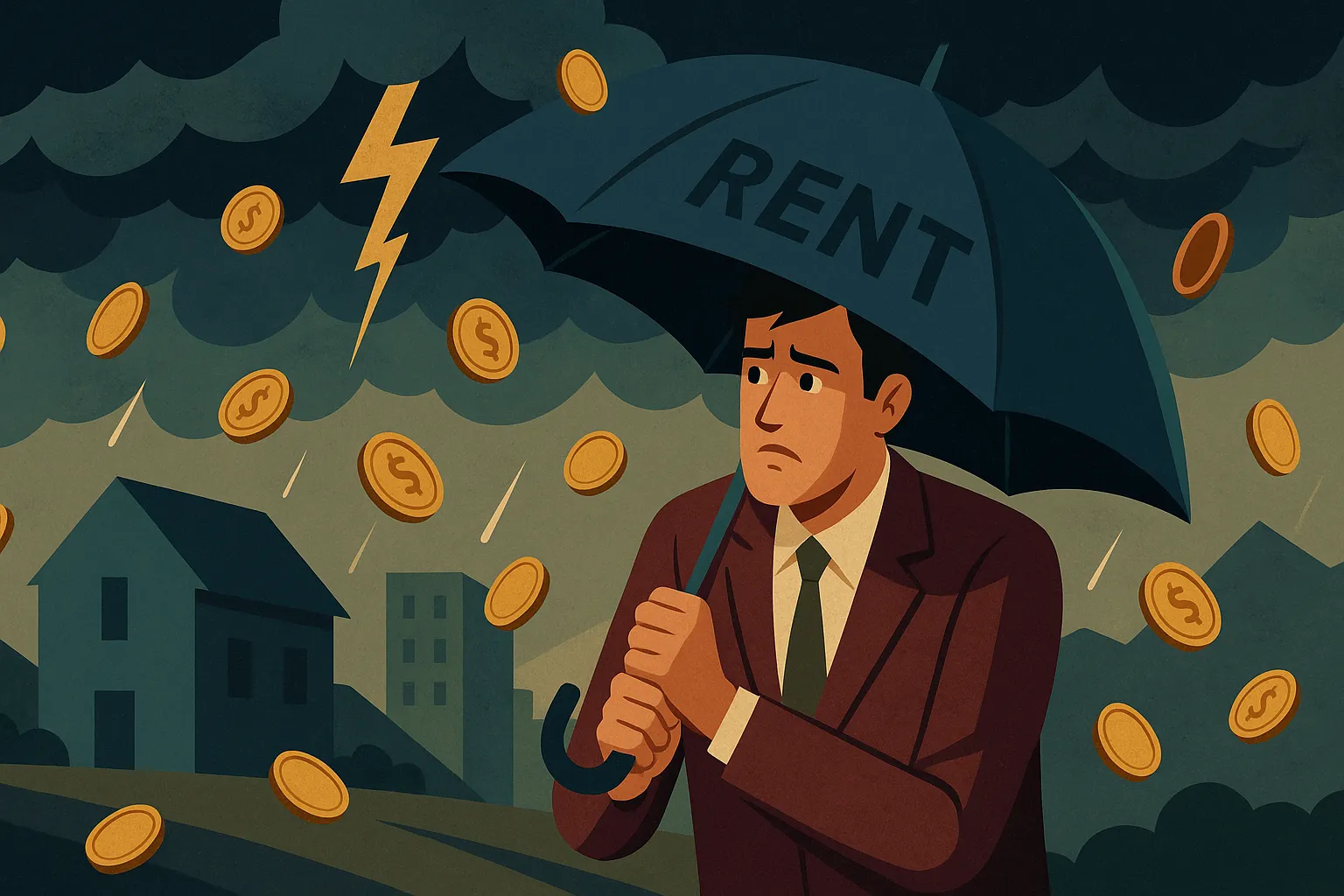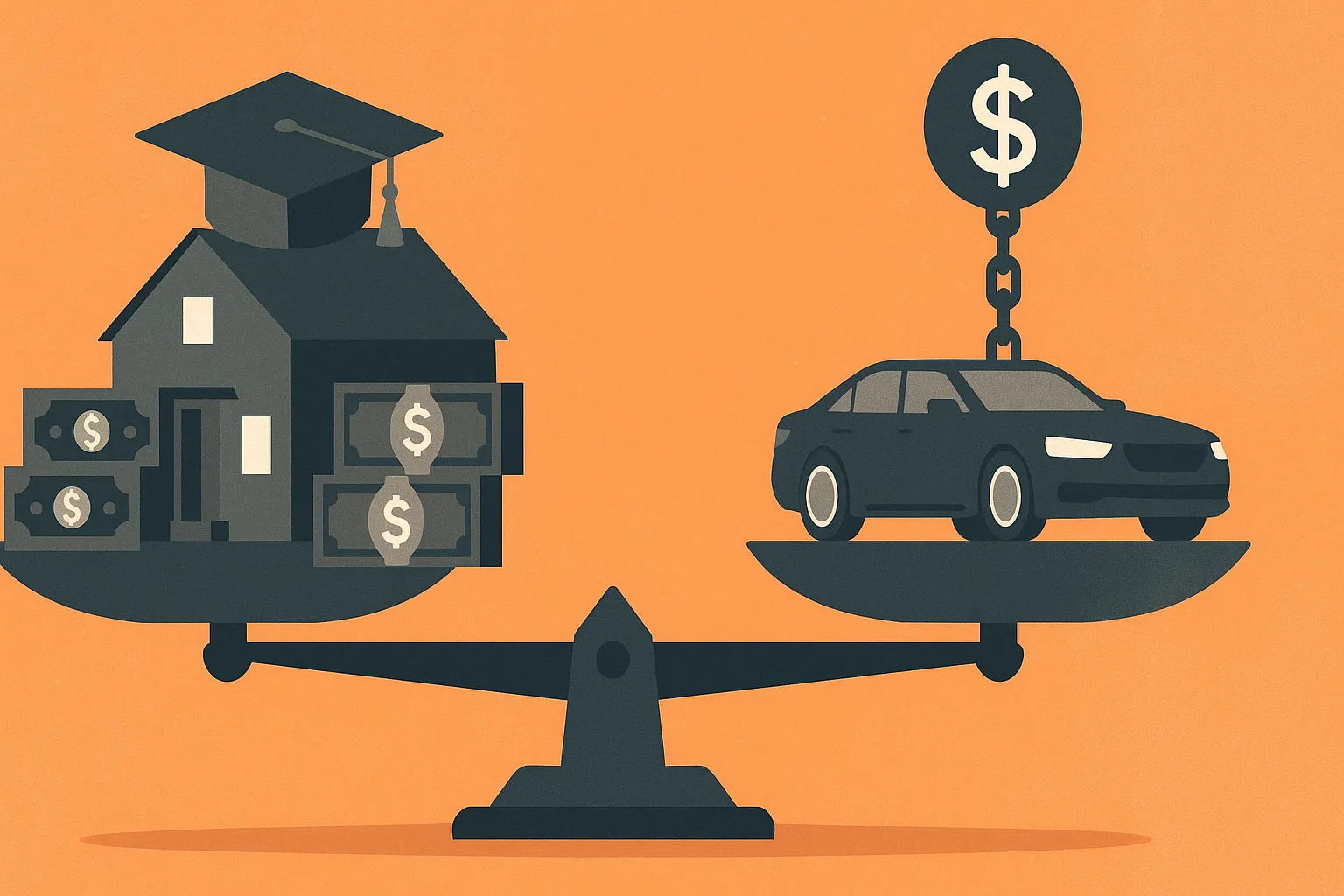Is Renting Really Throwing Money Away?

According to a 2024 study by Harvard’s Joint Center for Housing Studies, nearly half of U.S. renters spend more than 30% of their income on housing—yet many still believe they’re wasting money. The idea that renting is “throwing money away” has been repeated for decades. But is it true—or just emotionally persuasive?
This article challenges the narrative. It explores how renting can provide financial flexibility, reduce opportunity cost, and—even in high-rent markets—be a strategic decision depending on a person’s goals, time horizon, and risk tolerance.
Key Takeaways
- Renting may preserve liquidity and optionality, which can be valuable in uncertain job markets.
- Owning a home involves hidden costs—property taxes, maintenance, and transaction fees—that renters don’t pay.
- The opportunity cost of a down payment may outweigh equity gains depending on market timing.
- Renting isn’t a permanent state; for many, it’s a tactical phase within a broader wealth strategy.
The Myth of “Wasted Rent”
The idea that paying rent is inherently wasteful assumes that buying is always financially superior. But that equation leaves out time, liquidity, taxes, and frictional costs. Owning a home isn’t just about building equity. It might often involves:
- High upfront costs — including a down payment, closing fees, and inspections
- Ongoing obligations — mortgage interest, property taxes, insurance, and upkeep
- Reduced flexibility — selling a home can take months and cost thousands in realtor fees
Hypothetical: Imagine a 35-year-old marketing manager living in a $3,000/month rental in Los Angeles. A comparable home costs $950,000. The 20% down payment alone ($190,000) could be invested elsewhere, potentially growing tax-efficiently over the years. Meanwhile, the renter avoids home maintenance surprises and stays mobile for future job changes.
The lesson: rent payments may feel intangible—but that doesn’t make them wasteful.
Liquidity and Optionality Have Value
For younger professionals or those in transition, maintaining liquidity can be more useful than locking up capital in real estate. Liquidity offers:
- Faster career moves
- More diversified investments
- Emergency access to cash without refinancing or selling
According to the Federal Reserve's 2023 report, 37% of U.S. adults would not be able to cover a $400 emergency expense with cash or its equivalent. In that context, keeping capital accessible—not locked in home equity—can be a sound financial move.
The Opportunity Cost of Homeownership
Even when a home appreciates, the full financial picture includes forgone returns from other investments.
- Hypothetical Example: If a $200,000 down payment were invested in a broad market index averaging 7% annually over 10 years, it could grow to nearly $400,000. If that same capital were tied up in a home that appreciates at 3% annually, the relative difference could be hundreds of thousands of dollars.
This doesn’t mean renting always wins. But it reframes the conversation: not owning doesn’t mean not building wealth.
Renting Can Align With Strategic Goals
For people with shorter time horizons, uncertain job paths, or a desire to invest in business, markets, or education, renting offers breathing room. Flexibility can reduce the risk of being forced to sell during a downturn or relocate at a loss.
Renting can also make sense when housing prices are elevated and interest rates are high, as seen in 2022–2023. During this period, mortgage costs surged, and home affordability dropped to the lowest level in over a decade, with only 37.4% of homes considered affordable for median-income families. In periods like this, renting can serve as a stabilizer—not a setback.
Cash flow consistency can often be more valuable than ownership status. Renting doesn’t mean giving up—it may simply be delaying until the conditions make sense.


